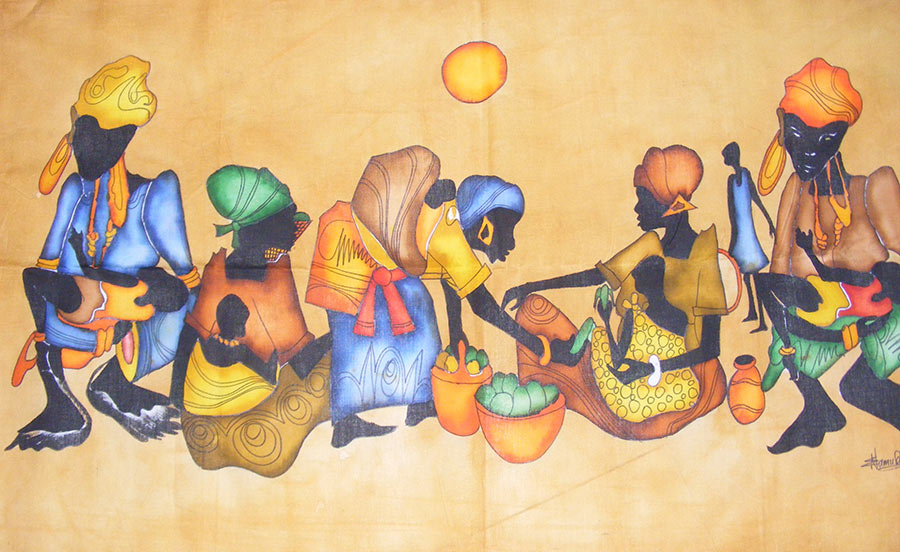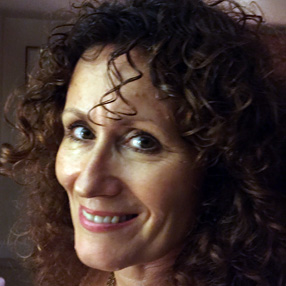
Welcome to Diary of a Muzungu! This week’s guest post is by Angela Dempsey, who was so captivated by her first impressions of Uganda that she contacted me to ask if she could share her experience. Here it is.
I felt a tension, a feeling of foreboding, when I saw a hundred-or-so young Ugandan soldiers lining up in the airport to board a bus in the night. I couldn’t help but wonder where the bus would take these young men next and if they would ever return. Perhaps it was just a routine training expedition but in this part of Africa it was hard for me not to jump to the conclusion that it was war.
Ugandans and their neighboring countries have wrestled against war for decades. Since the 1980s, Ugandans have endured tragic losses caused by the Lord’s Resistance Army (LRA). In the Acholi region of northern Uganda, where most of the ladies of Aggie’s Arts were born, more than a million people were forced to flee their homes. A large number of those refugees found their way to the south and ended up living in the slums of the capital city of Kampala.
One person I know has likened Kampala to a post-apocalyptic city—like some scene from a sci-fi movie. The roads are paved but there are potholes everywhere. There exists what I term “half-buildings”, abandoned mid-construction, everywhere you turn. The dust of the stripped land of red clay permeates the air and mixes with the pollution of cars and motorcycles to create a hovering cloud over the city. Many of the restaurants, hotels, private residences, schools and churches are surrounded by a 10-foot cement block wall with barbed wire along the top perimeter and have one single-gated entry point with armed guards to ensure no weapons are brought inside. All of this contributes to this surreal sense that you have entered a place that intuitively knows that safety is only a mirage and peace is still a dream.
“There is an air of quiet perseverance, kindness and timidity in the Ugandan people that one can only attribute to those who have suffered and survived. This attitude makes you want to help them all the more.”
What really amazed me was the contrast between these surroundings and the people. I observed them as they walked everywhere in their nicely pressed outfits—men in buttoned down shirts and slacks and women in nice dresses with children strapped to their backs. They smile. They work hard. I found Ugandans to be friendly to outsiders when one might expect there to be distrust.
I saw this same attitude in many of our Aggie’s Arts ladies as we visited them in their homes in Banda, a slum outside Kampala.
I was fortunate to be in Banda with the ladies on a Saturday, which is laundry day. There is something about the universal chore of laundry that made me feel immediately connected with their community. They hand washed their few clothes and hung them out in the sun like my grandmother used to do. There was no denying as I walked through this area of the world that life is very, very hard here.
Children are everywhere I walk.
They gaze at me with dark, curious eyes. Many of them called out “Muzungu!” (the name of anyone who has white skin) and they want to shake my hand and say “good morning.” I see a small group of children playing soccer (football) and I think of my nine-year old daughter who would love to join them. Smiling faces in the midst of such poverty is disarmingly beautiful and poignant at the same time. Sadly, for many of these impoverished children, working at the rock quarry or having a child in their early teens will soon truncate any opportunity for education or play time.
Most of the homes I observe are small, 10 foot by 12 foot dwellings about the size of my front porch at home in the U.S. That space is then divided by a thin curtain to keep the living space separated from the sleeping space. The kitchen consists of a small charcoal pit with a pan for cooking and is located just outside. There is no indoor plumbing; no toilets other than a shared hole in the ground surrounded by walls, nearby. If they are lucky, they have a spigot (water tap) nearby and can pay someone for water so that they don’t have to walk miles carrying heavy water from the main spout near the road. Unfortunately, the cost of this water is so high they end up walking anyway. Food is made up of greens, a cornmeal mixture made into “porridge” and rice or beans. The ladies said they usually eat one meal a day.
There is an undeniable desire to help that pierces your heart when you see these ladies, their families, and their hardships. As I boarded the plane to go back home, I knew that I had learned much during my interviews with the ladies and my experience in Uganda. I walked away having seen the transformation that can happen when people are given the opportunity to provide for themselves and their loved ones through the work of their own hands. I am convinced more than ever that Aggie’s Arts is working. I also realized that Aggie’s Arts, here in the U.S., is a vital part of that transformation.
People have asked me if I’d like to go back. Knowing there is still much work to be done, I give a wistful reply of “Someday.” Hopefully, it won’t be too long.
About Angela Dempsey
Angela Dempsey has been a youth mentor, a missionary, a mechanical engineer, and a leadership trainer. She has lived in the U.S. and France. She is a lover of people, travel, and family. She is also a great admirer of coffee, chocolate, and classic literature. She lives in Alabama with her husband, Robb, their two beautiful girls, and a tuxedo cat named Shadow. She is currently the President of the Board of Directors for Aggie’s Arts, Inc. Her trip to Uganda took place in March 2014. Ms. Dempsey may be contacted at adempseywork[at]gmail.com
The Muzungu: thanks Angela for sharing your story. It’s always interesting to see the world through someone else’s eyes. Here is one of my very first blogs about Uganda: Touchdown Africa – a letter home.

































Hello Dokta, greetings, I just joined your blog. Interesting. I ran one 2006-08 but made the mistake of allowing anonymous comments and I had an infestation of anonymice.
I bin [sic]] reading your book again – Potholes – to extract from in my book on Uganda Asians. I shall show you what I did. After 7.9 yrs my book’s still not done but it should out in June. I told PM at that function that in 7.9 yrs I added 1.2 m million words to the word-count on Uganda, while the owner of the resort added 10x to Uganda’s GDP. He said you contributed as much.
Hi Jamal, I have forwarded your email to Dr Clarke – he is not the writer of this blog, but I did write about him when he was elected Mayor of Makindye.
Regarding ‘spam’ comments on your blog, you shouldn’t let these put you off writing. I have a WordPress, hosted blog. I use the free Akismet plug-in and this removes all the rubbish comments. Good luck with your book.
Welcome from another mzungo who has made the ultimate contribution to good race relations by marrying a Ugandan lady.
CONGS John! Best wishes to you both 🙂